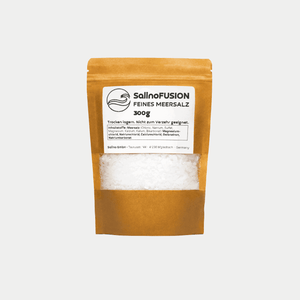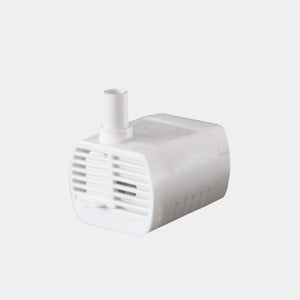When the world gets too loud
There are moments when everything inside us cries out for retreat. When everyday life overwhelms us, the screen never goes black, and even the breaks between meetings don't allow us to breathe – then the longing for silence grows within us. Not just any silence, but the kind that not only calms us but leads us back to ourselves.
Many people seek it in nature, in an hour of yoga, in the silence between breaths. But sometimes that's not enough. Sometimes it takes more than a few minutes on the mat or an app with a gentle voice. It requires a space that holds us whole. A place where we don't just meditate—but learn to see our lives in a new light. That's exactly what meditation camps and silent retreats promise.
In this article, you'll learn what makes these intense experiences so special—and why you shouldn't mistake them for a wellness vacation. We explore seven profound experiences that almost all participants describe—whether at a meditation seminar in the Alps, a Vipassana retreat in Italy, or a meditation vacation on the North Sea.
Ready to meet yourself in a new way?
1. The moment you realize how loud your inner self actually is
 The first day at camp. You hand over your phone, mentally say goodbye to push notifications, emails, and podcasts—and find yourself back in silence. But what initially sounds liberating becomes the first challenge for many.
The first day at camp. You hand over your phone, mentally say goodbye to push notifications, emails, and podcasts—and find yourself back in silence. But what initially sounds liberating becomes the first challenge for many.
Because when things get quiet around you, things often get really loud inside you. Thoughts that would otherwise be lost in the noise come flooding back. Memories, doubts, unfulfilled longings. An inner murmur that can almost overwhelm you in the first few days.
This is precisely where the path to true mindfulness begins. Meditation camps aren't escapes; they're mirror rooms. Without distractions, you face yourself – and slowly learn to listen without judgment. This is often uncomfortable, but healing.
Guided meditations, periods of quiet sitting, conversations with teachers: They help you not to suppress this noise, but to understand it. And at some point, it happens: You sit there – and it becomes quiet. Not around you. But within you.
2. The first real conversation – without words
 Many meditation seminars involve periods of silence, sometimes lasting several days. This often sounds radical to outsiders, but for participants, it becomes one of the most moving experiences.
Many meditation seminars involve periods of silence, sometimes lasting several days. This often sounds radical to outsiders, but for participants, it becomes one of the most moving experiences.
Because when words disappear, new forms of contact emerge. A glance over tea, a mindful walk through the forest, sitting together at dusk. Suddenly, you no longer perceive people through what they say—but rather through who they are.
This wordless connection touches something primal within us. In a world where communication is often reduced to screens, where performance seems more important than presence, such silent encounters act like a counter-spell. And they resonate – often far beyond the camp.
This form of communication is also cultivated in traditional mindfulness trainings or Zen retreats. It's not necessary to be Buddhist or spiritually "savvy." It's enough to be present—and open.
3. When the body finally feels like home again
 Most people spend too much time sitting in their lives – both mentally and physically. Stress, tension, shallow breathing – our bodies are often just functional shells. A meditation camp begins a cautious return: to our own body awareness.
Most people spend too much time sitting in their lives – both mentally and physically. Stress, tension, shallow breathing – our bodies are often just functional shells. A meditation camp begins a cautious return: to our own body awareness.
This can be achieved through silent walking meditation, conscious breathing , or body-focused mindfulness exercises like the body scan. Many camps also offer gentle yoga or Qi Gong—not performance-oriented, but rather awareness-enhancing.
The results are often astonishing: After just a few days, participants report that they feel their bodies differently. As sensitive resonance chambers. As communicators, not just as carriers. Old pains can surface – and sometimes resolve themselves, simply by turning to them.
This reconnection is not only beneficial—it is fundamental. A mindful mind needs an inhabited body. Without this connection, meditation remains merely a mental game.
4. Rituals that support you – even when you are back to everyday life
 In many meditation camps, small rituals develop over the course of the day. Perhaps you start the morning with a quiet cup of tea in the common room, watch the sunrise in silence, or write a few lines in your journal in the evening. These aren't predetermined routines—they often emerge spontaneously, out of a need for rhythm, for form, for stability.
In many meditation camps, small rituals develop over the course of the day. Perhaps you start the morning with a quiet cup of tea in the common room, watch the sunrise in silence, or write a few lines in your journal in the evening. These aren't predetermined routines—they often emerge spontaneously, out of a need for rhythm, for form, for stability.
These rituals have tremendous power. They not only have a calming effect in the moment, but also embed mindfulness in everyday life. Many participants report that these very small habits—mindful walking, conscious breathing, and daily pauses—continue to accompany them even after the camp.
Those who participate in a longer mindfulness retreat or an intensive meditation seminar will learn that change doesn't require grand New Year's resolutions. It begins in the quiet moments and becomes alive through repetition.
This new self-care—free from discipline and self-optimization—is often the most lasting gift of a retreat. It's not what you "learn" there that counts, but what you silently take with you.
5. Setbacks, doubts – and the moment you stay
 What hardly anyone says: Meditation camps aren't always "enlightening." They can be uncomfortable. There are days when you'd rather leave. Because everything inside you rebels: against the silence, against sitting, against confronting yourself.
What hardly anyone says: Meditation camps aren't always "enlightening." They can be uncomfortable. There are days when you'd rather leave. Because everything inside you rebels: against the silence, against sitting, against confronting yourself.
And yet you stay. Perhaps because you know this escape is just the same old reaction. Perhaps because for the first time you feel like you've entered an inner space you don't want to leave.
These moments—when you reach your limits and yet persist—are perhaps the most honest. Because no meditation technique helps here, no instructions, no mantra. Only your breathing. Your being. And the silent knowledge: This, too, belongs to you.
Many retreat leaders speak of the "gold mine of resistance" in such moments. Not in the sense of heroism, but as an invitation to become mindful precisely where it hurts. Because often the greatest insight lies beneath.
Anyone who has ever endured a deep crisis on a meditation retreat—be it tears, fatigue, frustration—knows this turning point. And it carries you when you return. Back to everyday life. Back to life.
6. Time loses its hardness – and becomes a river again
 Those who have been to a meditation camp often describe the same phenomenon: time changes. Not just because there are no clocks on the walls or the daily schedule is reduced, but because one's own sense of time is rearranged.
Those who have been to a meditation camp often describe the same phenomenon: time changes. Not just because there are no clocks on the walls or the daily schedule is reduced, but because one's own sense of time is rearranged.
At first, every day feels endless. Minutes stretch, hours creep by. Without constant distraction, it becomes clear how tightly we are timed in our daily lives—and how rarely we are truly where we are.
But the longer you stay in retreat, the softer this time becomes. It doesn't get shorter, but brighter. You don't lose yourself in it so much as you anchor yourself in it. The moment takes on weight. A walk in silence can feel more meaningful than a whole week in the office.
This isn't an escape, but a return: to a sense of time that comes from within yourself. And this new feeling often changes you more than any technology.
7. Meaning no longer asks “what for” – but simply reveals itself
 At the end of a meditation seminar, something unexpected sometimes happens. Not a firework of enlightenment, not a magical vision. But something simpler—and deeper.
At the end of a meditation seminar, something unexpected sometimes happens. Not a firework of enlightenment, not a magical vision. But something simpler—and deeper.
You wake up in the morning. The birds are singing. Your body is calm. And suddenly, everything is enough. No more searching. No more inner monologue explaining or questioning the now. Just presence. Simply being.
Some call it peace, others clarity. For many, it's simply the moment when they feel: I am here. And that's enough.
This experience often changes one's relationship to the topic of "meaning." Because suddenly, it's no longer about whether life has a grand plan—but rather whether you're truly living it. In the moment. With your eyes open.
This is precisely the profound power that people take away from meditation camps – whether they are beginners or experienced mindfulness practitioners. Because once you've experienced this feeling, you won't forget it. And perhaps you'll carry it further – in encounters, at work, in everyday life.
Conclusion – The return begins quietly
Meditation camps aren't events. They're not wellness trips, challenges, or self-improvement programs. They're spaces—quiet, intense, sometimes uncomfortable—where you can rediscover yourself. Not through grand theories or promises, but through experience.
You sit. You are silent. You breathe.
And slowly, old patterns dissolve. Thoughts flow forward instead of becoming stuck. The body becomes an ally, not a tool. And suddenly, the world has depth again.
Of course, no camp is a cure for all of life's problems. But anyone who has ever been completely at one with themselves on a silent retreat knows: There are places within us that can only be heard in silence. And it's worth seeking them out.
Not everyone has the opportunity to regularly attend a multi-day meditation seminar. But there are ways to create small islands of relaxation in your daily life – even after returning home. A quiet morning routine. A conscious lunch break. A space where mindfulness becomes not a method, but a mindful attitude.
Complementary silence – when the breath needs space
Anyone who has ever sat in a meditation camp knows: Breath plays a central role. It carries us through restlessness, through doubt, through silence. It is the only thing that truly happens in the now. And often it is precisely the breath that shows us how we are feeling at that moment—shallow, hectic, calm, deep.
Many people take this new sensitivity to breathing home with them. But back in everyday life, we encounter dry, heated air, irritants in the city air, and stress. The clear breathing experience of a retreat isn't always sustainable.
Some people then find ways to design their environment to support breathing – without effort, without focusing on technology. One possibility is the use of salty air within their own four walls: not as a medical measure, but as a silent companion.
A mini-saltworks like the one at SalinoVatis can help here: It creates an atmosphere reminiscent of the sea – not in the sound, but in the air. Many people find this soothing, especially in meditation or relaxation rooms. Breathing flows more freely, the senses calm down – and what began in the camp also finds a place at home.
Not a substitute for mindfulness. But perhaps a silent ally in the daily routine.



